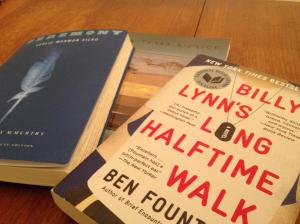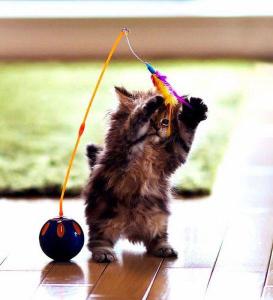This excerpt is quite old and the larger project it belongs to languishes in a folder along with my other abandoned, unfinished works. I think I probably did an awful job conveying a male perspective but the dynamic could’ve been interesting. I may resurrect Adam for something else.
“I dunno, I guess he’s an albino or something?”
“I really don’t give a damn what color he is, Rich. What do his stats look like? Skill set? Experience? Language? Other potentially useful bits of information?”
The secretary shrugged. “I didn’t get a file.”
“Didn’t get a file? What is this, summer camp? No, actually, even the kiddies at summer camp have a file, even if it only says they’re allergic to nuts. But nothing on the guy who’s supposed to help me catch a war criminal? I’m about to lose my shit.”
“Well maybe you better lose it after you meet with Dr. Pearce. She’s been waiting.”
“Yeah, well that’s the least she can do.”
Rich only shrugged again, and Brad stormed down the hallway to the doctor’s dark, wooden door. He rapped three times, heard her lilting, sing-song, “Come in!” and twisted the door knob so hard that the metal squeaked in protest.
“Dr. Pearce, I am fully aware that you are in charge of this agency and you have the right to do whatever you want, but as a member of this team I just have to say I’m incredibly insulted at how—”
Brad very nearly bit through his tongue as the door slammed behind him and his eyes registered the figure slouched in the chair in the far corner of the room.
He was white all right, but he was not albino. He was all white. Whiter than the average line of coke. Whiter than Brad’s grandma’s porcelain tea set. Whiter than the core of a lightning bolt. From his lips to his ears to the roots of his cropped hair there was not the barest hint of color; not a single touch of human pink, not one blue vein, not a solitary dark hair. His snowy eyelashes framed eyes that were as blank as paper except for the dark, inky slits of the pupils.
Brad was aware that he had allowed a choked gasp of horror to escape him and now the sound seemed to be echoing around the room. He knew he was staring but he couldn’t stop his eyes from darting back and forth and up and down over the white face as they tried to make sense of the picture before him. He realized he was backed up against the door, his hands behind him and clutching the door knob, but he couldn’t bring himself to step away.
If the white man was offended he didn’t show it. The glance he gave Brad showed no curiosity or anger or any other discernible human emotion, and after a few seconds he looked down at his hands. His long fingers and china-white fingernails looked absurdly bright against the deep red fabric of his shirt.
Dr. Pearce, hair as blond and lipstick as pink as ever, was scribbling something down and didn’t appear to have looked up at all. “Mr. Ortega, while I realize Mr. Varrow’s first impression is somewhat startling, I had hoped you would have the decency not to act like a schoolgirl.”
Brad opened and closed his mouth. Opened it, closed it. He saw the white man looking between Dr. Pearce and himself, only the flickering movement of the pupils betraying him. Brad sorted through the questions pin-balling through his brain and realized that, since Dr. Pearce had referred to the white man as “Mr. Varrow” and not “it” or “the robot” or “the alien ambassador,” none of them could safely be considered appropriate. He opened his mouth, closed it again. Dr. Pearce raised her head from her scribbling and gave him a look that suggested he drown himself in the nearest toilet. The white man waited.
“Varrow?” Brad finally said. “As in, Varrow Enterprises? I wasn’t aware Mr. Arnold Varrow had a, um…a…” Dr. Pearce’s pink fingernails were tapping impatiently on her desk. “…any living relatives.”
“He hasn’t,” Dr. Pearce said, rising from her desk. “But this is his company’s project. Mr. Varrow, this is Mr. Ortega, who is far more competent than he presents himself.”
Brad felt something like panic rising in his throat as the white man stood. What did she expect them to do, shake hands?
But the white man clasped his hands behind his back and simply stood, his shirt stretching tight over his muscular shoulders and chest. He knew Brad didn’t want to touch him, didn’t want to move an inch closer to him, and Brad imagined he saw pity in the impassive white face.
He marched across the room, hand outstretched like a jousting lance, and stopped a few feet from the stranger. Even at Brad’s six feet the white man had a couple inches on him, but he was close enough now to see the barely discernible looping pattern of the eyes’ colorless irises.
“Brad,” he said brusquely. “Pleasure to meet you.”
The white man took the proffered hand; Brad couldn’t stop himself from blinking when he made contact, but the white hand felt like any other human hand.
“Adam,” he said. His voice was deeper than Brad expected but otherwise unmemorable. What stuck was the flash of chalk-white tongue behind his teeth.














You must be logged in to post a comment.